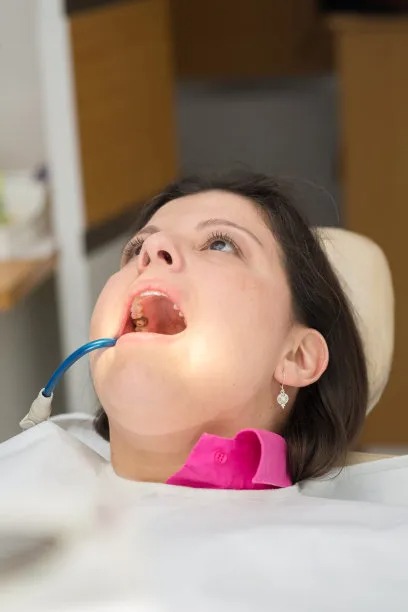Summary: Periodontal disease, an inflammatory condition affecting the soft and hard tissues surrounding the teeth, poses significant challenges to oral health. This article delves into its causes, impacts, and effective treatment strategies. We explore how poor oral hygiene, genetic predisposition, and systemic diseases contribute to its onset. Additionally, the repercussions on overall health and well-being are examined, highlighting the links to cardiovascular diseases, diabetes, and more. Finally, effective treatment strategies, including professional cleanings, scaling and root planing, and ultimately surgery, are discussed to provide readers with comprehensive knowledge on managing periodontal disease for improved oral health.
1. Causes of Periodontal Disease Explained

Periodontal disease primarily stems from plaque accumulation on teeth, which, if not removed through proper oral hygiene, hardens into tartar and irritates the gums. This irritation can lead to gingivitis, the first stage of periodontal disease. Poor oral hygiene practices, such as infrequent brushing and flossing, significantly elevate the risk of developing these conditions.
Genetic predisposition also plays a crucial role in the development of periodontal disease. Some individuals may be genetically more prone to infections, affecting their bodys ability to combat bacteria in the mouth. Understanding ones family history can provide insights into potential risks.
Moreover, certain systemic diseases, like diabetes and heart disease, contribute to the onset and progression of periodontal disease. Diabetes impairs the bodys ability to use glucose, leading to complications that can worsen gum health, while studies have found correlations between periodontal disease and cardiovascular problems, highlighting the interconnectivity of oral health and overall health.
2. Impacts on Overall Health and Quality of Life
The impacts of periodontal disease extend far beyond oral health, significantly affecting overall well-being. Chronic periodontal diseases have been linked to a higher risk of heart disease. Inflammation from periodontal problems can contribute to arterial plaque buildup, thus increasing heart disease risk.
Additionally, individuals suffering from periodontal disease are often at a higher risk for diabetes complications. The inflammatory response in the gums can make it more challenging to control blood sugar levels, leading to a vicious cycle of poor health outcomes.
The psychological impacts are also noteworthy. Many individuals with periodontal disease experience social withdrawal due to concerns about mouth odor, tooth loss, or the aesthetic aspect of their smile. This can lead to feelings of embarrassment or depression, significantly affecting their quality of life.
3. Effective Treatment Strategies for Periodontal Health
Effective management of periodontal disease begins with professional dental cleanings. Dentists and dental hygienists play an essential role in removing plaque and tartar buildup, helping to restore gum health. Regular visits for cleanings are crucial for preventing the diseases progression.
For more severe cases, scaling and root planing may be necessary. This deep cleaning procedure involves scraping away tartar from above and below the gum line and smoothing out rough surfaces of the roots, promoting healing and reattachment of the gums to the teeth.
In advanced stages of periodontal disease, surgical options may be considered. Procedures like flap surgery and bone grafting can restore supportive tissues and improve overall dental health. These interventions should be tailored to the patients specific needs after thorough consultations with dental professionals.
4. Importance of Regular Dental Check-ups
Regular dental check-ups are paramount for maintaining oral health and preventing periodontal disease. These visits allow for early detection and intervention, ensuring that minor issues do not escalate into serious conditions. Regular assessments help in identifying changes in gum health before they become problematic.
Additionally, dental professionals can provide personalized advice on maintaining oral hygiene at home. They offer tips and techniques that cater to individual needs, which can significantly improve oral health, thereby reducing the risk of periodontal disease.
Furthermore, education on the links between oral health and systemic diseases empowers individuals to take a proactive approach in their care. Understanding these connections enhances motivation for maintaining regular dental visits and following recommended hygiene practices.
Summary:
Periodontal disease is a multi-faceted issue that requires diligent attention to its causes, widespread impacts, and effective treatment strategies. Through awareness and proactive management, individuals can significantly improve their oral health and, by extension, their overall well-being. Ongoing education and regular dental care are critical to combating this prevalent condition and ensuring long-term health outcomes.
This article is compiled by Vickong Dental and the content is for reference only.
Vickong Dental
Vickong Dental is a large medical group established in Hong Kong in 2008 by professors from well-known medical universities in Guangdong and Hong Kong, as well as medical doctors from key national '985' universities (including Master's supervisors and senior professors). The chain of branches brings together expert dentists with PhDs and Master's degrees from Hong Kong and Mainland China, committed to providing high-quality dental treatment.
"Vickong Dental Practices the University Motto of 'Healing and Serving Society,' with a Stable Operation for Sixteen Years. It Has Been honored with Hong Kong Enterprise Leaders's Choice,' and is a Global Trusted Implant Center for the Nobel Implant System. Recommended by Hong Kong Metro Broadcast and Guangdong Television, it Serves Customers from Over Thirty Countries and Regions, Gaining the Trust and Favor of Citizens from the Guangdong-Hong Kong-Macau Greater Bay Area and Surrounding Cities.

Thousands of customers' unanimous praise
The most recognized and highly recommended dental service by customers in the Guangdong-Hong Kong-Macau Greater Bay Area
We Ensure You Receive Detailed Care and Attention Here
Hong Kong standards, Shenzhen prices, Your Trusted English-speaking dentists

Vickong Dental Medical-Grade Instrument Disinfection Process
Vickong Dental Medical-Grade Instrument Disinfection Process

Vickong Dental Chain: A Warm and Comfortable Environment for Treatment






Appointment Hours

Q&A
Why choose Vickong Dental?
Vickong Dental practices the university motto 「Medicine to Benefit Society」, with each branch bringing together highly qualified dentists with doctoral and master’s degrees from Hong Kong and the Mainland, and has maintained seventeen years of steady operation。Recipient of 「2024 Hong Kong Enterprise Leaders Brand」, 「2025 Hong Kong Enterprise Leaders Brand」, a Nobel Biocare Global Trusted Implant Center, and a brand recommended by Metro Radio Hong Kong and Guangdong TV。
To date, we have served customers from more than thirty countries and regions,earning exceptionally high word-of-mouth recognition and trusted recommendations from residents across the Guangdong-Hong Kong-Macao Greater Bay Area and surrounding cities
We have eight major branches in Zhuhai、Shenzhen,and a consultation and service assurance center in Hong Kong,so you can book a free consultation at any time for any questions,which is very reassuring.
If I do not accept the quotation after the CT scan, will I be charged??
No! As long as the actual treatment has not started, you will not be charged any fees.
Will there be any additional charges during the treatment process?
No, there won’t be any additional charges. Before treatment begins, we will clearly explain the treatment plan and its corresponding fees. Only after the patient agrees and signs the consent form will we proceed with the dental service.
Can I pay in Hong Kong dollars?
Yes. Vickong Dental accepts payment in Hong Kong dollars. The amount will be converted based on the exchange rate of the day, and the applicable rate will be clearly communicated to you in advance.
Can I reschedule my appointment at any time?
Yes. Please contact us via **WeChat** or **WhatsApp** as early as possible, providing your original appointment time and details, along with your preferred new date and time slot for rescheduling.













